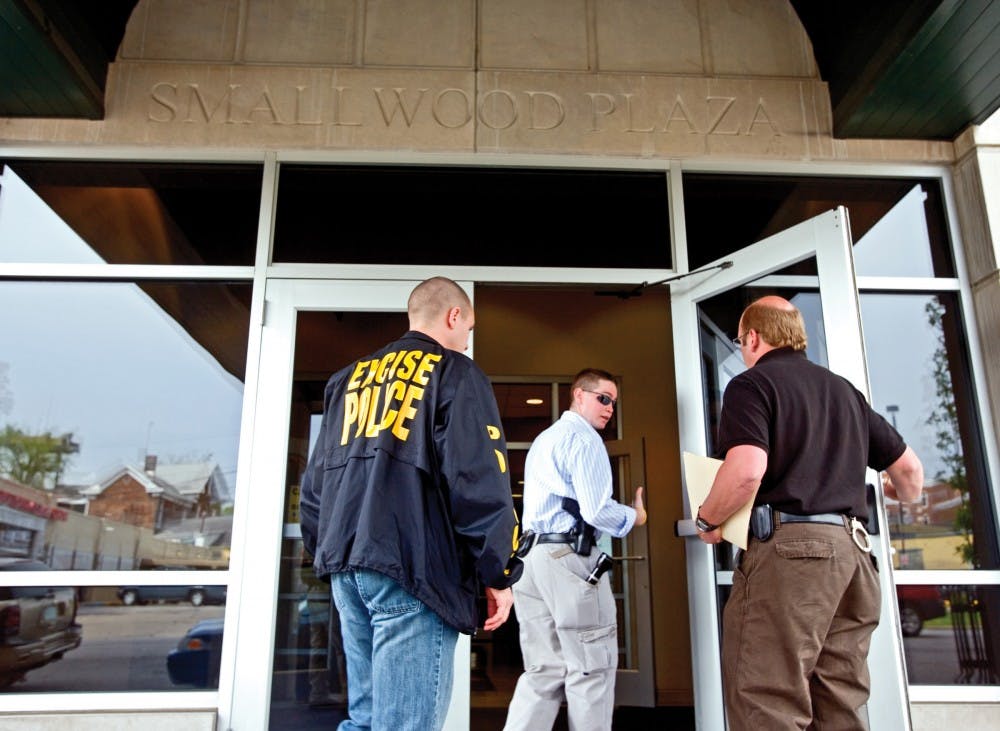Despite IU’s dry campus branding and anti-tobacco rules, students are still found with alcohol, tobacco and other substances every day. Often, the Indiana State Excise Police is the force catching them.
Excise is the arm of Indiana’s state police focused on alcohol and tobacco law enforcement. Students are likely to run into Excise officers at liquor stores, tailgates, bars and other alcohol-soaked stores and occasions.
“We try to achieve a common objective, which is to prevent underage access to alcohol,” Lt. Travis Thickstun, Excise’s District Five commander, said.
The agency patrols house parties, tailgates for underage drinkers and stands guard at stores to look for fake IDs. It also monitors places like restaurants and convenience stores to ensure clerks and waitstaff aren’t selling to minors.
Excise also focuses on educational programming and offers free informational programs on drug and alcohol safety to schools and other organizations.
Thickstun has worked in District Five since 2002, spending most of his career in Bloomington after graduating from IU. He said he became interested in the force because of its targeted enforcement and commitment to education.
“You want to come to IU, get a degree and leave with that degree — not a criminal record,” he said.
For this reason, Thickstun said Excise tends to issue citations for underage drinking offenses instead of making arrests for first-time offenders. This allows those cited to go through a pre-trial diversion program and take alcohol safety courses instead of facing trial and potential fines or jail time.
“It’s basically ‘You got caught, you’re 18, don’t do it again,’” Thickstun said.
He said most of those ticketed by Excise in Bloomington are first-time offenders who are eligible for the program.
Pre-trial diversion doesn’t ensure future employers will never find out about the citation, but it reduces the chance of the prosecutor’s office filing misdemeanor substance abuse charges.
Thickstun said his agency’s role in enforcement is important — no matter how insignificant some of the crimes they look for may appear to students — because of the tragedies alcohol abuse can lead to.
“We’re not there to ruin people’s college experience, but there are real concerns about misuse and overuse of alcohol,” he said. “In order to prevent those types of incidents, there has to be some type of enforcement of those alcohol laws.”
Lisa Hutcheson, director of the Indiana Coalition to Reduce Underage Drinking, said people often look at alcohol as a more innocent substance than it is in reality.
“I think a lot of the time — even as adults — we forget that alcohol is a drug,” she said. “It’s a danger.”
Thickstun and Hutcheson both said all they can do is try to educate college students on the law and how to drink responsibly and hope they listen.
“The first thing I’d remind freshmen is that not all college students drink,” Hutcheson said.
The 2017 Indiana College Substance Use Survey found that 51 percent of students surveyed drank alcohol in the past month. The 2016 National Survey on Drug Use and Health found that 58 percent of full-time college students drank alcohol in the past month, but only 19.3 percent of people aged 12-20 reported drinking alcohol.
It’s up to people make their own choices, but Thickstun said they need to know enough about the law to make informed decisions.
“Once you know what you can and can’t do, you make your own choice of whether you do that thing or not,” he said. “If you’re caught, that’s kind of on you.”




